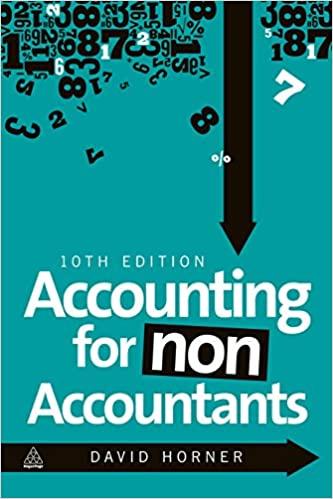Question
Question #2 A friend of yours, Bree, wants to start a tax-exempt organization that helps kids learn how to learn foreign languages. Bree asks you
Question #2
A friend of yours, Bree, wants to start a tax-exempt organization that helps kids learn how to learn foreign languages. Bree asks you how she could go about doing this. You tell her that she needs to form a nonprofit corporation and then seek tax-exempt status from the IRS by filing Form 1023. Bree goes to the IRS website and tries to fill out Form 1023. One part of the form asks is the organization is going to be a public charity or a private foundation. Bree does not know how to answer this question, so she calls you and asks, What is the difference between a public charity and a private foundation? Which one should my organization be? Why? Please respond to Bree.
Question #3
Raja owns 100% of an S corporation. The S corporation has no earnings and profits from C corporation years. Rajas tax basis in the S corporation stock is $1,400 at the beginning of the year. During the year, the S corporation earned $3,300 of ordinary business income, long-term capital gain of $500, and tax-exempt interest of $200. Additionally, the S corporation distributed $2,200 cash to Raja during the year. What is Rajas stock basis at the end of the year?
Step by Step Solution
There are 3 Steps involved in it
Step: 1

Get Instant Access to Expert-Tailored Solutions
See step-by-step solutions with expert insights and AI powered tools for academic success
Step: 2

Step: 3

Ace Your Homework with AI
Get the answers you need in no time with our AI-driven, step-by-step assistance
Get Started


